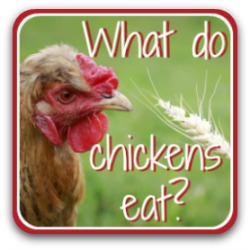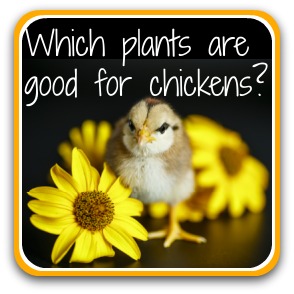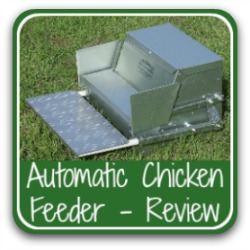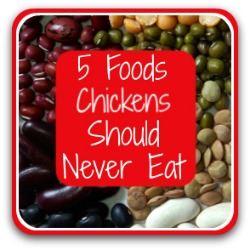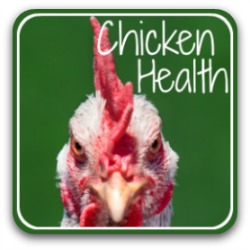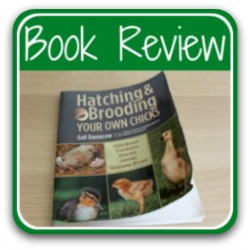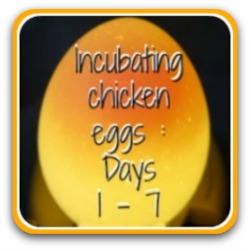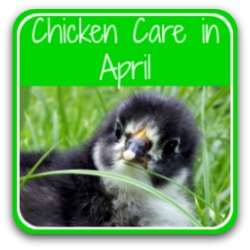- Home
- Plants for Chickens
- Benefits of garlic
The benefits of feeding garlic to chickens.
Why garlic is a super-food for chickens, and how to grow, store and feed it to your flock.
Let's start at the beginning: what, exactly, is garlic?
A member of the onion ('Allium') family, garlic is classed as a vegetable although many people think of it as a herb.
It consists of a number of small 'cloves' bunched together into a 'bulb' or 'head' and covered with a thin, paper-like coating.
Originating in Asia, it's been around for centuries and has been used medicinally for human beings for almost as long.
Here in Italy, which has one of the lowest rates of heart disease and cancer, it's used freely and in fairly large quantities in human recipes.
But what about garlic for chickens? Does it really have the benefits that some people claim?
Take a look at this quote from a Veterinary study talking about garlic as a supplement in the poultry diet:
"Garlic is the king of the medicinal plants... It has antibacterial, antiviral, antifungal and antiprotozoal properties. Moreover, it boosts the immune system, improves body weight gain, heightens the digestibility of ingredients, decreases bad cholesterol, and also augments the meat quality parameters." (2).
What this article covers.
This is a very long article, covering all aspects of the health benefits of garlic for chickens. If there's specific information you're looking for, these links will help.
Can chickens eat garlic?
Absolutely. Chicken keepers have used raw garlic for years to help ward off a whole list of poultry ailments including respiratory problems, infection, and as a general support to the immune system.
 Every rural Italian family grows enough garlic to last one year.
Every rural Italian family grows enough garlic to last one year.You may see articles saying that, because it's part of the onion family, garlic is poisonous to chickens. Not so.
The make-up of garlic is entirely different and the element that causes issues in onions - thiosulphate - is present only in tiny quantities in garlic.
Dozens of scientific, peer-reviewed trials have shown beyond doubt that garlic is beneficial to chickens' health and wellbeing.
It promotes growth in weak chickens (and broilers, but we won't go there), and even has a positive effect on the nutritional value of eggs.
We'll look at specific uses below.
There's always a but...
Any addition to your chickens' daily feed should only be given if there is evidenced research about the benefits.
With garlic, that certainly exists - it's one of the most highly researched plants available. See the sources section below - and there's a lot more where that came from!
But it's important you don't go overboard with this. As always, it's moderation in everything. Too much garlic will interfere with the balance of bacteria in the digestive system.
Test it in small quantities, adding gradually to food or drink. Don't try to put an entire garlic bulb in your chickens' water if they've never had it before - they simply won't touch it.
Can baby chicks eat garlic?
Again, in moderation.
There are certainly benefits in adding garlic to drinking water and food for baby chicks as soon as they're in the brooder.
It will help build their immune system and helps guard against worms. And chicks who have tasted garlic water soon after hatch are more likely to accept it as adults.
Gail Damerow suggests giving a small amount, no more than one clove (not a bulb!) to one litre (1.5 UK pints; 4 US cups; one quart) of water. Crush the garlic into the water no more often than twice a week.
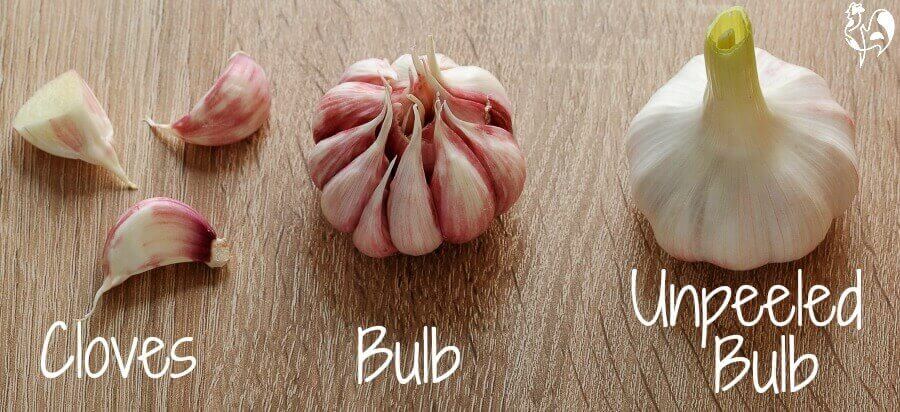 Left to right: fresh garlic cloves, a peeled bulb and an unpeeled bulb or 'head'.
Left to right: fresh garlic cloves, a peeled bulb and an unpeeled bulb or 'head'.Don't allow the garlic water to stand for longer than 48 hours. In between times, offer ordinary water as usual. And keep an eye on the chicks - if they're not drinking, they will easily dehydrate.
In that case, revert to water without the garlic. Try again in a couple of days. Reduce the amount of garlic at first, gradually increasing it over time.
What exactly are the health benefits of garlic for chickens?
Garlic is touted round the internet as a cure for everything from cancer to the common cold. But there's lots of misinformation out there, too.
So what exactly is the evidence of garlic's benefits for chickens?
Here are some instances where garlic has been proven to have a beneficial effect on poultry.
- A boost to the immune system. Add garlic to food or drink when a chicken seems generally "under the weather". Look for changes in eating or drinking, ruffling feathers, not wanting to go outside the coop. Supporting the immune system helps the bird fortify itself and potentially heal.
- Protects against bacteria. It's proven to be active against bacteria, including Salmonellosis, Colibacillosis and Cholera.(2)
- Kills 'bad' bacteria. Antibiotics in poultry feed is illegal in some countries and ill-advised in others, because of the increased resistance to them in humans. Garlic can effectively be used as a replacement.(2)
- Re-balances the system. Because garlic seems to target 'bad', rather than 'good', bacteria, it can help a chicken recovering from illness to return to full health.
 Garlic is great for helping baby chicks develop a healthy immune system.
Garlic is great for helping baby chicks develop a healthy immune system.- Helps hens' egg production. It's known to help produce larger, better quality eggs with a lower level of 'bad' cholesterol.
- Helps underweight or non-eating chickens. Garlic stimulates the appetite and helps promote growth.
- Deters red mite. The allicin garlic contains is thought to make the chickens' blood, which the mites live on, taste odd. If you prefer a natural rather than chemical answer to mites, this is worth a try.
Does garlic kill worms in chickens?
You'll find a lot of articles online saying that garlic kills worms in the gut. The fact is there's not much research on this and it should not be used in cases where worms have already taken up residence.
There is some research in mice that worms in the gut were reduced in the first week after being fed garlic. After that, it had no effect.
The scientists concluded that the garlic was not killing the worms directly, but building up the immune system to fight the inflammation the worms brought.
If you see worms in your chicken poop, it's too late for garlic - you need a proven wormer such as Verm-X. (This is an "affiliate link", which means that if you click and buy, I earn a small commission at no extra cost to you).
That said, adding garlic to the diet is known to make the environment less attractive to red mite and it may have a similar deterrent effect on worms.
But, as above, do not expect it to kill worms already colonised in the gut. Take immediate action if you see worms. Add garlic to the flock's diet once you've got rid of them.
How much garlic should I give my chickens?
Remember: the word is "moderation".
You'll see different recommendations around the Internet, but the way to go is to follow advice from experts and findings from real studies. Which is how I came to this advice:
- In water: use one fresh garlic clove per litre, or 4 per gallon.
- In oil: use half a fresh clove to 1 litre, or one to 4 pints.
- Over food: one clove, crushed or finely chopped, twice a week.
- Always use fresh, raw garlic. Cooking reduces its benefits.
What's the best way to feed garlic to the flock?
The benefits of crushing garlic cloves.
When a garlic clove is crushed, it releases an element called 'allicin'. Allicin is known to be a forceful anti-oxidant, which works either by itself or with other compounds to strengthen the immune system. In chickens it's therefore effective against various bacteria and viruses.
However, the strongest benefits of crushed garlic seem to weaken after 24 hours. So if adding to food or drinking water, be sure to refresh after, at most, 48 hours.
Crush using either a pestle and mortar or save the hassle of peeling by using a garlic presser like this one. (Affiliate link).

The benefits of raw garlic.
- Don't cook any garlic you're intending to feed to your flock. Evidence is that raw garlic is best. Heating it reduces levels of allicin.(5)
- If your chicks have been raised with the taste of garlic, try chopping or mincing two cloves at a time into tiny pieces. Feed in a bowl separate from your flock's usual feed. Remove after 24 hours and repeat twice weekly.
- However, unless chickens have been raised to the taste, they won't peck at a whole, raw clove - or even chopped, if it's fed separately. In that case, chop into into tiny pieces and sprinkle on their food.
- Add to any recipe dishes you make for your flock, such as my protein platter treat recipe.
Feeding garlic in water.
This is probably the easiest way to make sure your flock get their dose of raw garlic. Simply crush 1 clove per litre (4 per gallon) into their drinking water or, if you're using it, add to their electrolyte drink.
- For healthy chickens, refresh the water after 48 hours, leaving out the garlic. Do this twice each week.
- For weak chicks or chickens, or those who need a boost to their immune system, continue with the garlic until symptoms have passed.
- If your flock turn their beak up and aren't drinking, add less garlic and slowly build up the amount.
- Of course, if you're at all concerned about your chickens' health, you should contact an avian veterinarian (where possible) every time. Garlic is not a substitute for veterinarian treatment.
Are there benefits of garlic in oil?
Garlic in water tends to lose its effectiveness quickly. In oil, it's preserved for longer. So you'll see some advice about drizzling garlic-infused oil on your flock's feed.
However, there's evidence of an increased risk of botulisms produced by garlic soaked in any oil unless either the cloves are cooked, or the garlic-infused oil is refrigerated in the short term or frozen in the longer term.
 Garlic infused olive oil tastes wonderful - but beware of the dangers.
Garlic infused olive oil tastes wonderful - but beware of the dangers.How to make garlic oil.
- Soak two or three cloves in one litre of oil for about six hours. Use on the same day, or refrigerate for up to one week.
- After a week, the oil must be either frozen or discarded.
- If you're at all concerned about the potential dangers of botulism, leave oil alone and just feed fresh garlic.
Does garlic powder work as well as fresh?
There's lively debate about this in chicken (and human wellness) forums. You'll find some advice which says always give fresh, not processed, garlic. That's certainly what I like to do whenever I can.
But statements saying that heat processing to make garlic powder reduces the effectiveness seem unfounded, if scientific research is to be believed.
Studies, such as this one published in the International Journal of Poultry Science, have demonstrated that adding no more than 1% of garlic powder to a hen's diet increased both the rate at which hens laid, and the quality, including weight, of their eggs.
Want to keep some powdered garlic on hand? Dry it yourself by slicing your cloves thinly and baking at a very low heat for about 2 hours. Store in a glass jar and, when you're ready to use it, simply grind it with a pestle and mortar.
Alternatively, use a dehydrator. It will keep in a sealed jar for about 6 months.
Or, buy a stock of garlic granules. Avoid the fried variety and go for organic, non-GMO. I use these at times when I don't have any fresh garlic, or don't have time to crush or powder it.
Once opened, store in an airtight container. Sprinkle on feed twice a week, or add to water at the rate of 1% of the feed weight.
I use around one teaspoon per kilo.
The side effects of garlic on eggs.
It's commonly thought that adding garlic to your hens' diet will make their eggs taste and smell of garlic. There's no doubt that if you add a lot of garlic to the diet, eggs will taste differently.
But "a lot" means at least 3% of your flock's daily feed - 30 grammes per kilo (1oz per 2 lbs). That's a lot of cloves, and it's highly unlikely you'll ever feed anything like that amount.
A study by Clemson University as far back as 1988 found that testers actually preferred the taste of eggs from the hens fed on garlic. They found the eggs tasted milder, probably because garlic is known to reduce the sulphur content.
The importance of garlic and cholesterol.
There's hard evidence from scientific studies that, with an addition of just 1.0% of garlic to hens' feed:
- egg production increased
- the weight of eggs increased
- the amount of cholesterol in egg yolks decreased
- the quality of the white of the egg improved.(3, 4, 5)
 Want larger, nutritionally superior eggs? Use garlic!
Want larger, nutritionally superior eggs? Use garlic!
Side effects in the chicken coop.
The Clemson University study found that adding garlic to feed reduced the ammonia smell of poop in the coop: "It makes the poultry house smell like a pizzeria instead of manure".
So if you want your coop to smell like a pizzeria, you know what to do!
How to grow your own garlic in 6 easy steps.
Given that garlic has such amazing benefits for chickens, it makes sense to give them the best you can find.
Growing your own ensures that it's fresh, not genetically modified and free from chemical treatments.
And it's really, really easy to grow the most delicious bulbs, even if you have limited space.
Follow this link to discover how easy it really is to grow organic, untreated, delicious, healthy garlic for your flock - and for your family!
Enjoy enhancing your chickens' health with garlic!

- Home
- Plants for Chickens
- Benefits of garlic
If you found this article helpful, you may like these.
Sources and further reading.
A lot of "facts" you'll find on the internet are often people's individual views, often based on inaccurate information repeated from poor quality sources.
The information I provide in this article and others is based not just on my own experience, but on evidenced facts from scientific, peer-reviewed research and from highly respected and experienced poultry keepers such as Gail Dammerow.
Some of the sources I have used are these - click the link to read the full document:
1. Damerow, Gail: The Chicken Health Handbook. Pub. Storey, 2015.
2. Rehman, Z., and Munir, M: Effect of garlic on the health and performance of broilers. Pub. Veterinaria, 2015.
3. Olobatoke, R., and Mulugeta, S.: Effect of dietary garlic powder on layer performance, fecal bacterial load and egg quality. Pub. Poultry Science, 2011.
4. Khan, S. et al: Effects of dietary garlic on performance and serum and egg yolk cholesterol in laying hens. Pub. Asian Journal of Poultry Science, 2007.
5. Abdulaziz, A: Effects of different dietary levels of garlic (Allium Sativum) powder on productive performance and egg quality of laying hens. Pub. International Journal of Poultry Science, 2016.
6. Bruso, J: Which is healthier: raw or cooked garlic? Pub. Livestrong, 2017.


